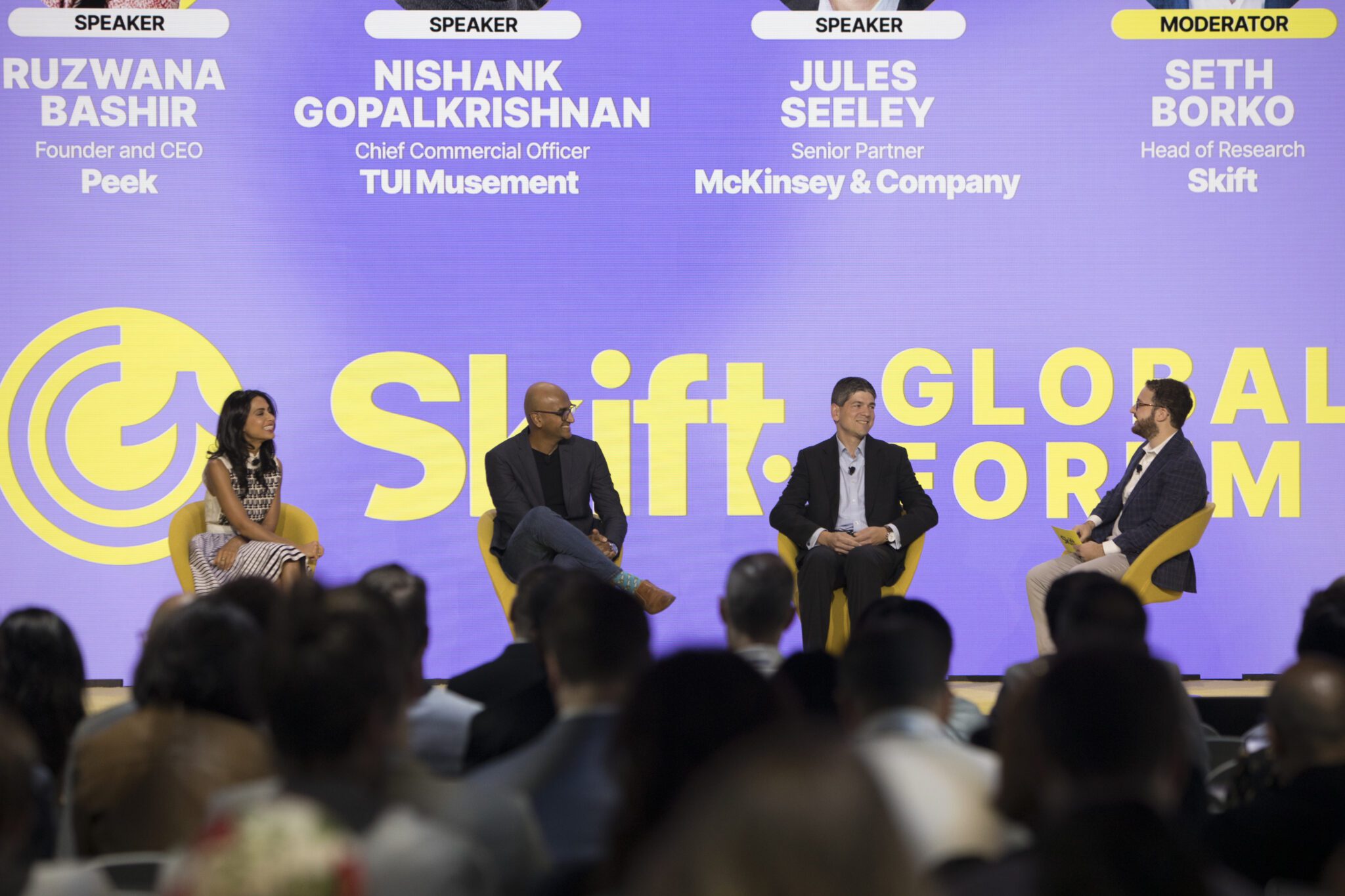Skift Take
In this video from Skift Global Forum, executives from Peek, TUI Musement, and McKinsey & Company broke down significant shifts in traveler behavior driving the boom in the experiences sector.
This content was created in collaboration with a Skift partner.
In this video:
- A shift in travel priorities: Consumers are prioritizing experiences over products, which is not only driving more demand for travel overall, but it’s also influencing changes for what people do (and buy) while they are traveling. Social media has amplified this trend by driving inspiration and a desire for memorable moments.
- Finding a place in the booking path: While flights and hotels are booked far in advance, travelers often wait until the last minute to decide on experiences. This gap can cause challenges for airlines, hospitality brands, and OTAs looking to offer experiences in the booking path.
- The role of technology: AI and digitization are reshaping the experience industry, allowing better personalization and support for small operators, while helping travelers navigate fragmented offerings.
In this video from Skift Global Forum, Ruzwana Bashir, Founder and CEO of Peek; Nishank Gopalkrishnan, Chief Commercial Officer of TUI Musement; and Jules Seeley, Senior Partner at McKinsey & Company joined Skift Head of Research Seth Borko to discuss the growing importance of experiences in the travel industry, noting a significant shift in traveler behavior in this direction over the past few years.
“Experiences,” as the panel defined them, are now at the forefront of decision-making. In fact, spending on experiences has increased dramatically, outpacing spending on products. For instance, the rise of thematic travel, such as the Taylor Swift “Eras Tour,” underscores how special events are driving both intent and bookings.
Travel for special events is influencing its own kind of tourism boom, but on the opposite side of the spectrum, a vast majority of experiences are purchased long after travelers book flights and hotels. There’s no surprise here, as people often wait until closer to their travel dates to plan an itinerary — much closer, the panel said, i.e. within the last seven days of their trip.
New technologies, particularly AI, can help suppliers and OTAs capitalize on the experiences trend by providing better curation and personalization for their customers. However, given that more than half of experiences are still booked offline, digitizing this information will be crucial for navigating the fragmented nature of the experience industry and enabling smaller providers to compete by partnering with larger brands with distribution networks to amplify their businesses.
For more insights on this topic, download the new report created in collaboration between Skift and McKinsey, which examines the world of travel experience ranging from stadium rock concerts to guided nature hikes to in-home culinary gatherings and everything in between.
This content was created collaboratively by McKinsey & Company and Skift’s branded content studio, SkiftX.
Have a confidential tip for Skift? Get in touch
Tags: experiences, mckinsey and company, peek, research, sgf2024, skift research, tui musement

